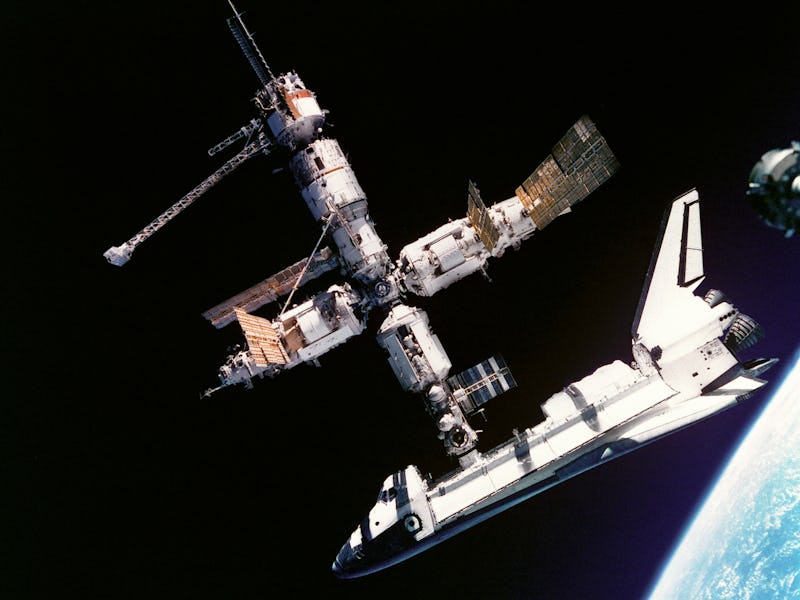Space is not a competition, but a collaboration.
That was the message from Anousheh Ansari, CEO and Co-Founder of Prodea Systems. She’s been to space, self-funding her way onto a Soyuz flight to the International Space Station in 2006. Ansari describes her experiences as transformative, and on Thursday, said as much: “You see the need to collaborate and work together on a deep level.”
Ansari’s comments came during the “Interplanetary Frontiers” panel at the White House Frontiers Conference in Pittsburgh. She was one of three of the space industry’s top leaders — all women — who talked about the future of space travel and humanity’s push toward new boundaries of outer space. The panelists, from public and private sectors, pursue wildly different interests, but the consensus they came to was clear: Various national space agencies need to work together if we want to achieve interplanetary travel.
To win at space, we need to work together.
That’s a sentiment shared by Dava Newman, the Deputy Administrator for NASA. “I’ve spent my entire career thinking about how to get humans to Mars,” she said, and in describing the agency’s three-phase journey.
Newman reiterated how NASA is looking to turn low Earth orbit operations over to the commercial sector and keep it sustainable. “That’s really where we’re placing our bets,” she said.
The government is also actively looking for the private industry to help spur innovation in the space sector. Newman cites NASA’s NextSTEP program as a way in which the federal government can leverage the creativity of the commercial industry towards helping NASA expand its presence into deep space and make it to Mars.
Blue Origin's New Shepard rocket with the crew capsule during an experimental test flight earlier this year.
Erika Wagner, the Business Development Manager for Blue Origin, thinks it’s “intensely human to be wanting to be reaching out,” and is not surprised that spaceflight has broken into the mainstream. NASA, she said, “has done a good job of blazing those frontiers” and getting humans into far off places, but she thinks growing partnerships between different companies and agencies will create “the opportunity for all of us to stand together on that stage.”
“We’re seeing the frontier open up in a lot of ways,” she said, pointing to the rise of private companies like Blue Origin and SpaceX, the shrinkage of satellites in order to allow more companies to send their technology into orbit, and the fact that nowadays, any school that can afford a robotics program, can afford a space program.
From left to right: Moderator Robert Capps of 'Wired' magazine; Anousheh Ansari, CEO and Co-Founder of Prodea Systems, Inc.; Dava Newman, Deputy Administrator at NASA; and Erika Wagner, Business Development Manager at Blue Origin.
Space doesn’t have to be to be a winner-take-all competition, Ansari said. “If one person wins, even if it’s not their team, it shows that it’s possible for everyone to succeed,” said Ansari.
Newman, representing NASA, was even more direct: “Everyone’s success is our success. The next generation,” she said, “is the space generation. It’s in the interest of everyone to work together to open up space to as many people as possible.”
